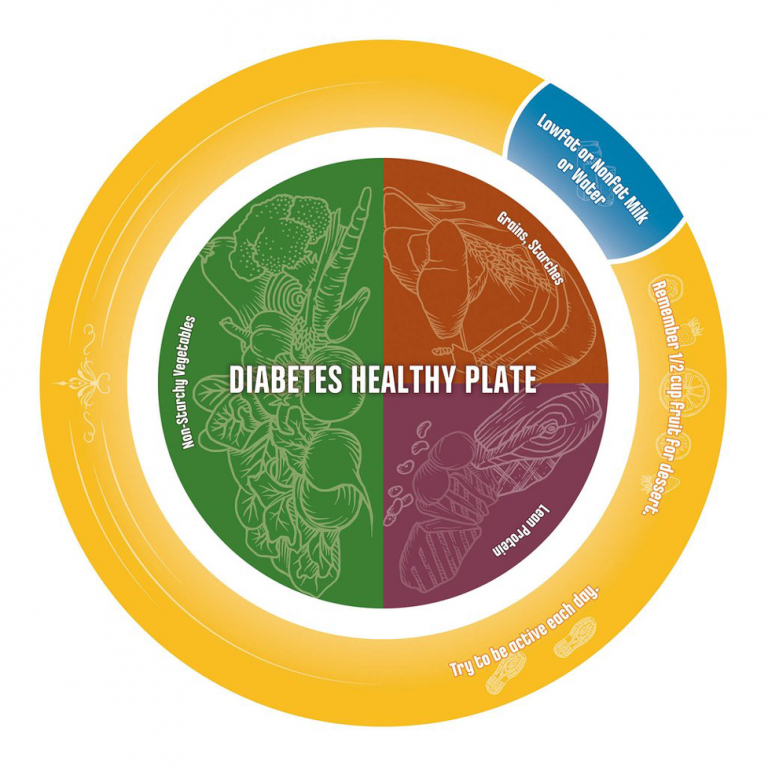DIABETES, DIET, AND NAVIGATING CARB COUNTING

When first diagnosed with Type 1 diabetes, I was shocked and scared of the diagnosis leaving me wondering why and questioning every move I made. Other than being hospitalized at the initial diagnosis most are given very little time or help by doctors, nurses, or the on-duty medical staff. Mostly they hand out some packets or pamphlets, a handful of prescriptions, with the instructions for a sliding scale for fast-acting insulin, directions about amounts and times of long-acting insulin, and a carb ratio for how much fast-acting insulin to take per so many carbs. The medical staff then proceed to tell us, ”Best of luck to you we will see you in three months!”. If you are not familiar with the medical field it is so stressful that first year, and you feel like there is no one to turn to except the old person down the street with type 2 diabetes that has no idea how any of your stuff works because they can take some Metformin and be just fine checking their blood sugar a couple of times a day.
The first step the doctor takes after you are diagnosed is sending you straight to a nutritionist. These diabetes educators start off teaching the basics of carb counting telling us our carbohydrate allotment for the day which is about 30-40 carbs per meal 3x a day is about 90-120 carbs per day. One lady showed me a picture of a plate with it divided into 3 sections. This was probably the most helpful visualization for me because I’m a visual learner. Two of the sections were about the same and the larger section took up half the plate. The side that took up half the plate was the “no-carb section” or “the green vegetable section”. She said the largest portion on your plate should have no carbs in it and be the majority of what fills you up (should be made of mostly fiber). The other two sections were about equal and a quarter of the plate. One was for carbs and the other was for protein. A lot of what she said made sense in a perfect world except the problem is we don’t live in a perfect world, do we?
I remember growing up I was 9 years old when I was first diagnosed with type 1 diabetes and my parents didn’t cook very much because they were super busy running their own small business. Most of the time we ate out or just ate at school. There wasn’t a whole lot of options that I could easily access that didn’t have a lot of carbohydrates in them. I was nine and didn’t know how to cook much/ I wasn’t allowed to use the stove so my go-to snack was cereal in a bowl. My older brother could make a few things but let’s be honest his specialty was microwave oven Kraft Mac n’ Cheese. Not really the best choices for a diabetic, however it’s really hard being so young and seeing all your friends and family eating all the stuff you are not allowed to have, and it makes life so frustrating. Also, when you’re in school it is hard to argue with adults who say you can’t have certain things like cupcakes when it little Suzie’s birthday. When you go to restaurants, they have it set up with an entrée and one side for children’s meals usually chicken tenders and fries or a burger and fries there is no option for a “no-carb section”! Life has not been designed with diabetics in mind, luckily there are ways we can overcome this.
With the COVID-19 pandemic, people aren’t going out as frequently anymore, to eat at least. We are finding it saves money to cook at home and if we aren’t getting the same experience as we used to then staying in is more enjoyable than having to eat outside when it’s cold or having to stay inside with a mask. Plus, it’s much easier to keep the low carb snacks within arm’s reach at your home. You can meal plan and you aren’t limited to what is available at the restaurant. It just seems to be a better easier way to know how many carbs are in the food you eat when you have all the information and prepare the food at home. Sometimes it is difficult to know what and how to go about picking the right foods for your meal. There are so many different diets out there claiming to help control your numbers with diabetes. How are we ever supposed to know which ones are right?
We are bombarded with so many different “Diabetic Diets”, “Diabetic Cookbooks”, and Doctors claiming they have all the answers! If it was really simple with one cure fits all, then there would not be any fat diabetics out there. So why do so many diabetics (including both types of diabetes) struggle with their weight so badly? Mainly because the job of the hormone insulin is to act as a key to allow nutrients into the cells for energy and when it does this it takes any excess nutrients and stores them as fat to be used at a later date. Yes, you read that right one of insulin’s main jobs is to store fat. Our livers don’t break down fat as easily so if we take too much insulin as a type 1 we go low, below 80 mg/dL in our bloodstream but we don’t breakdown fat to put sugar back into the veins and arteries to feed the cells as a non-diabetic would. This being the case, we take in more carbohydrates to compensate for the low. At this point, you feel like you’re starving and going to pass out, because of this desperate need to feel better we often consume too many carbs if we aren’t careful. This results in a roller coaster effect and when we go high, we have to take more insulin and it’s an endless rollercoaster cycle. With the unfortunate result being weight gain until the blood sugars can get in a more regulated state.
There are a lot of factors that affect your numbers, but a consensus among diabetic specialists is that eating meals at regular times, exercising, eating low carb diets, and getting a full 8 hours of sleep helps control your numbers and effectively help overall with weight loss. Everyone’s body and lifestyle are different and not every diet out there will work for everyone. I wish it were simpler but that’s the hard truth. Some people have very physical jobs and require more calories than others who are more sedentary throughout the day. Keto or Atkins diets may work great for type two diabetics but are not the best for type ones who still need some carbs to keep up their numbers. The best advice I can give is to keep a food journal and record all the carbs you eat and how much you exercise. Ask your endocrinologist before you start any diet and if they give you the okay for one start slow because your numbers may change drastically cutting out certain foods and exercising more and your doctor will need to make adjustments to the amount of insulin your body needs.
I have been a diabetic for over 20 years and carb counting is still something I tend to struggle with. I’ve gotten better at it as time has gone by but there are still moments when I guestimate and deal with the consequences of my choices later. If you find yourself in need of help with carb counting, I will share a tip with you. My go-to app for helping me count carbs when I’m at restaurants is CalorieKing. It’s a blue App with a magnifying glass. It has got tons of restaurants in it and it has been super helpful to me. They may not always have that certain new “special” that the restaurant has but it usually contains their staple meals. You can always go to either the website or the app of the restaurant to look up nutrition information. If you still find yourself struggling look for diabetic classes in your area you can attend or even ones online can be helpful. We all need a refresher course from time to time and they can be very beneficial. Take a family member or a friend with you to make it easier for you and they get the benefits of learning too. Who knows, maybe one day they could save a life with their knowledge!
By: Miranda Montgomery (Type 1 diabetic for 20+ years) Admin for Type 1 Diabetes Support Group on Facebook with 12.5 K members


